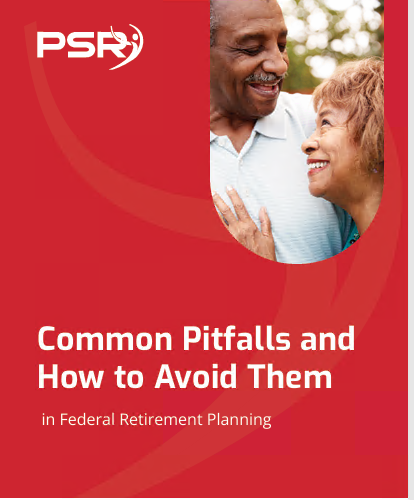Key Takeaways
- Divorce can significantly affect your federal pension, and understanding the specifics of how it might be divided is essential.
- Proper planning is crucial to protect your pension benefits when going through a divorce in the federal sector.
Is Your Federal Pension at Risk During a Divorce?
Divorce is never an easy process, but for federal employees, it can get even more complicated when it comes to dividing pension benefits. If you’re in the public sector, you may have questions about how your pension will be affected when going through a divorce. The rules are unique, and federal pensions don’t always follow the same path as private sector retirement benefits
- Also Read: Divorce and Your Federal Pension—What Happens When You Split Assets and How It Could Affect Your TSP
- Also Read: What Happens to Your Federal Benefits After Divorce? Here’s the Lowdown
- Also Read: The Best FEHB Plans for 2025: Which One Fits Your Lifestyle and Budget the Best?
What Happens to Your Federal Pension in a Divorce?
Dividing a federal pension in divorce is different from dividing other retirement accounts, like a 401(k). Federal pensions fall under the Civil Service Retirement System (CSRS) or the Federal Employees Retirement System (FERS), and both have specific rules for how benefits are split during a divorce. While the laws vary by state, federal law governs pension division, adding another layer of complexity.
In a typical divorce, your spouse might be entitled to a portion of your pension. This is usually negotiated during the divorce settlement and incorporated into a court order known as a Court Order Acceptable for Processing (COAP). This COAP is then sent to the Office of Personnel Management (OPM), which handles federal pensions. Once accepted, OPM will calculate how much of your pension will go to your ex-spouse.
Factors That Impact Pension Division
Several factors can determine how your pension is divided:
- Length of the Marriage: If your marriage overlapped significantly with your federal service, your ex-spouse may be entitled to a larger portion of your pension.
- State Law: Some states treat pensions as marital property, while others may not.
- COAP Details: The specifics of your COAP will determine how much, if any, of your pension your ex-spouse receives. This agreement will detail how much of your pension (and any cost-of-living adjustments) your ex-spouse is entitled to. It’s critical to make sure the COAP is detailed and clear.
It’s important to note that if the COAP isn’t properly written or filed, OPM might reject it, which can delay the division of pension benefits. Working with a knowledgeable attorney is essential in ensuring the COAP meets federal guidelines.
Survivor Benefits: What You Need to Know
Another important issue to consider is survivor benefits. Survivor benefits allow your ex-spouse to continue receiving pension payments after your death, but these benefits are not automatically granted during a divorce. The divorce decree and COAP must explicitly state whether your ex-spouse will receive survivor benefits, and you may need to make additional adjustments to ensure they qualify for these payments.
If you’ve already retired and your divorce decree doesn’t address survivor benefits, your ex-spouse may not be entitled to them. This can have serious financial consequences, so it’s crucial to consider this when negotiating the terms of your divorce.
Are Federal Employees Health Benefits (FEHB) Affected?
Your federal pension isn’t the only benefit that could be affected by divorce. Federal Employees Health Benefits (FEHB) coverage could also be at risk. After a divorce, your ex-spouse will generally lose their eligibility for FEHB coverage. However, they may be able to continue coverage under temporary continuation of coverage (TCC) for up to 36 months, though this option can be quite expensive.
It’s also important to know that FEHB coverage for children can be impacted, so make sure to address this in your divorce agreement. You’ll want to make sure any dependents continue to receive the coverage they need.
How Does FERS Differ From CSRS in Divorce?
For those who joined the federal service after 1987, the Federal Employees Retirement System (FERS) is the retirement plan in place. For employees hired before 1987, Civil Service Retirement System (CSRS) applies. The key difference between FERS and CSRS in the context of divorce is how the pension is structured and divided.
-
FERS: This system includes a basic pension, Social Security, and the Thrift Savings Plan (TSP), which is like a 401(k). When dividing FERS in a divorce, your ex-spouse may receive a portion of your basic pension and a share of your TSP, but Social Security benefits are not typically divided in a divorce.
-
CSRS: This system doesn’t include Social Security, which means your pension is your main retirement benefit. Dividing a CSRS pension can be more straightforward, but the stakes may be higher since there is no Social Security buffer.
Protecting Your Pension During Divorce
Going through a divorce as a federal employee can be stressful, especially when it comes to preserving your pension. Fortunately, there are steps you can take to protect yourself and your benefits.
-
Get Legal Advice: It’s critical to work with an attorney who is experienced in handling federal pensions during divorce. They can help ensure your COAP is properly drafted and that your pension is divided fairly.
-
Consider a Prenup or Postnup: If you’re entering a marriage or are already married, consider drafting a prenuptial or postnuptial agreement to protect your pension. These agreements can clearly outline how your pension will be handled in the event of a divorce, making the process smoother if the worst happens.
-
Understand the COAP: A properly drafted COAP is essential in ensuring your pension is divided correctly. Make sure your attorney understands federal pension laws and is well-versed in how to draft a COAP that meets OPM’s requirements.
-
Plan for Survivor Benefits: Whether you want your ex-spouse to receive survivor benefits or not, make sure this is clearly outlined in your divorce decree and COAP. Without clear instructions, OPM may not be able to pay survivor benefits, even if you intend for your ex-spouse to receive them.
-
Keep Track of Deadlines: There are specific timelines that come into play when dividing pensions, especially when filing COAPs. Any delays or missed deadlines can result in complications that could cost you or your ex-spouse significant portions of the pension.
Why Planning Matters
Divorce is a complex and emotional process, and it’s easy to get caught up in the immediate concerns of splitting assets and determining custody arrangements. But for federal employees, careful planning is essential when it comes to dividing pension benefits. The consequences of not addressing your pension in detail can be significant, and once a COAP is accepted, it’s often difficult to make changes.
As you navigate your divorce, it’s important to take the time to fully understand your pension, how it will be divided, and what steps you can take to protect your benefits for the future.
Understand Your Federal Pension’s Future After Divorce
Divorcing as a federal employee adds layers of complexity to an already stressful process. With the right information and planning, you can ensure that your pension is protected, and the division of benefits is handled smoothly. Always consult legal professionals who understand the unique rules governing federal pensions, and make sure you’re fully aware of your rights.













